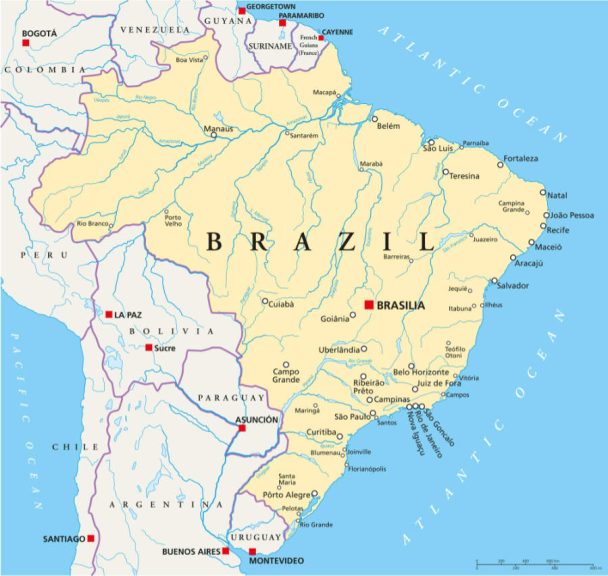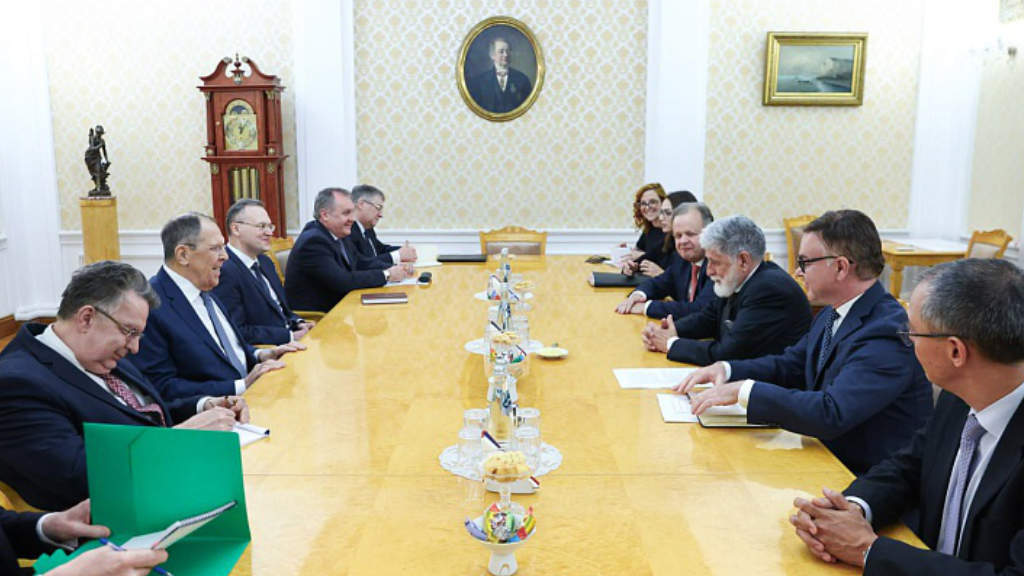The Russian Foreign Minister, Sergey Lavrov has met with Celso Luiz Nunes Amorim, the Special Advisor to the President of Brazil for Foreign Policy, in Moscow.
Lavrov and Amorim exchanged views on the current international situation and global problems. They also emphasised the mutual intention to further deepen coordination of Moscow’s and Brasilia’s efforts in multilateral platforms in the United Nations, the G20 and BRICS, where Brazil holds the chairmanship this year.
Brazil, is the largest country and economy in South America, and a key player in the global economy and a regional leader in trade and investment. It is a founding member of the BRICS bloc.
Agriculture and agribusiness are crucial in Brazil’s economy, making Brazil a leading global exporter of soybeans, coffee, sugarcane, and beef. The mining sector is equally vital, with Brazil being one of the largest producers of iron ore, copper, gold, and other minerals. The energy sector is powered by abundant resources, including oil, natural gas, and renewable energy, with hydroelectricity and ethanol being central to its energy matrix.
The Itaipu Dam, one of the largest hydroelectric plants globally, highlights Brazil’s renewable energy dominance. Manufacturing also plays a significant role, encompassing industries like textiles, food processing, and cement production. Investments in transport infrastructure have fueled growth in the construction industry, which expanded by 2.8% in real terms in 2024. The automotive industry remains pivotal, with vehicle production increasing by 4.4% by mid-2024. Additionally, the technology and electronics sector is expanding, supported by advancements in aeronautics, pharmaceuticals, and steel production.
As a founding member of Mercosur, Brazil engages in free trade with Argentina, Paraguay, and Uruguay and South America’s associate members. Beyond Mercosur, Brazil has bilateral agreements with India, Israel, and Egypt, and is an active member of the World Trade Organization (WTO) and Latin American Integration Association (LAIA/ALADI).
Regionally, Brazil has strengthened partnerships across South America, Africa, and the Middle East, particularly in agriculture and energy.

With a population of approximately 206 million, Brazil’s GDP (PPP) stands at US$4.9 trillion, with a GDP per capita (PPP) of US$23,000. The economy is projected to grow by 3% in 2025.
Brazil and Russia have a rapidly growing trade relationship, with Russia also investing heavily in significant industrial sectors such as nuclear energy, and uranium processing. Russian energy, agriculture and fertilizer exports have also boomed in recent years. New Brazilian consumer products are also finding their way into Russian supermarkets, including coffee, sugar, fruits, some dairy products, along with wines and spirits.
Brazil’s BRICS chairmanship will be highlighted during the July Heads of State summit in Rio de Janeiro, and can be expected to focus on BRICS development in Latin America and the Global South. Brazil, Russia and China would be keen to see additional new BRICS countries participate as members or partners, and this can be expected to occur.
Further Reading
Rosatom Proposes Small Nuclear Power Plants And High Capacity Units To Brazil

 Русский
Русский













